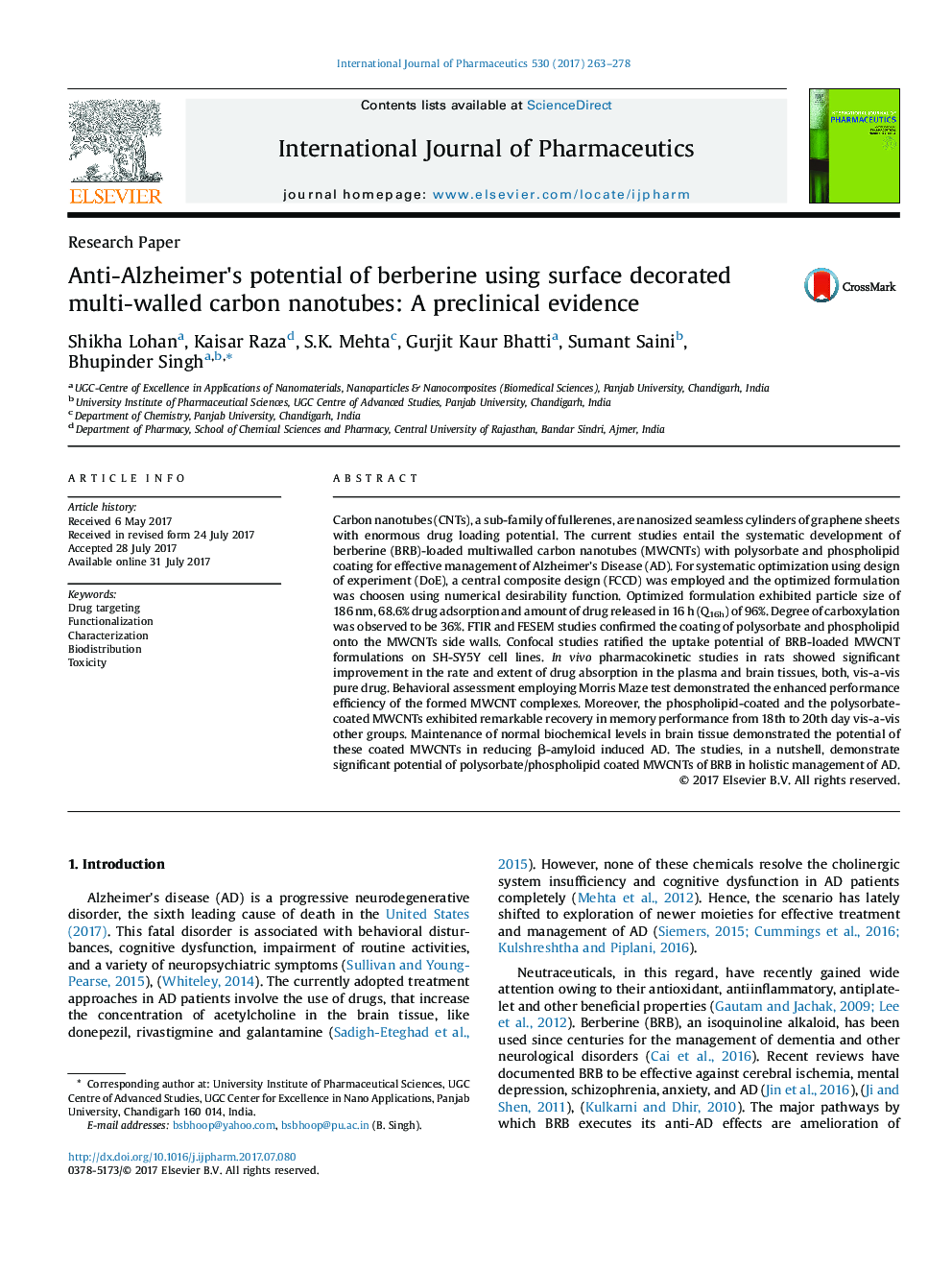| Article ID | Journal | Published Year | Pages | File Type |
|---|---|---|---|---|
| 5550138 | International Journal of Pharmaceutics | 2017 | 16 Pages |
Carbon nanotubes (CNTs), a sub-family of fullerenes, are nanosized seamless cylinders of graphene sheets with enormous drug loading potential. The current studies entail the systematic development of berberine (BRB)-loaded multiwalled carbon nanotubes (MWCNTs) with polysorbate and phospholipid coating for effective management of Alzheimer's Disease (AD). For systematic optimization using design of experiment (DoE), a central composite design (FCCD) was employed and the optimized formulation was choosen using numerical desirability function. Optimized formulation exhibited particle size of 186 nm, 68.6% drug adsorption and amount of drug released in 16 h (Q16h) of 96%. Degree of carboxylation was observed to be 36%. FTIR and FESEM studies confirmed the coating of polysorbate and phospholipid onto the MWCNTs side walls. Confocal studies ratified the uptake potential of BRB-loaded MWCNT formulations on SH-SY5Y cell lines. In vivo pharmacokinetic studies in rats showed significant improvement in the rate and extent of drug absorption in the plasma and brain tissues, both, vis-a-vis pure drug. Behavioral assessment employing Morris Maze test demonstrated the enhanced performance efficiency of the formed MWCNT complexes. Moreover, the phospholipid-coated and the polysorbate-coated MWCNTs exhibited remarkable recovery in memory performance from 18th to 20th day vis-a-vis other groups. Maintenance of normal biochemical levels in brain tissue demonstrated the potential of these coated MWCNTs in reducing β-amyloid induced AD. The studies, in a nutshell, demonstrate significant potential of polysorbate/phospholipid coated MWCNTs of BRB in holistic management of AD.
Graphical abstractDownload high-res image (176KB)Download full-size image
